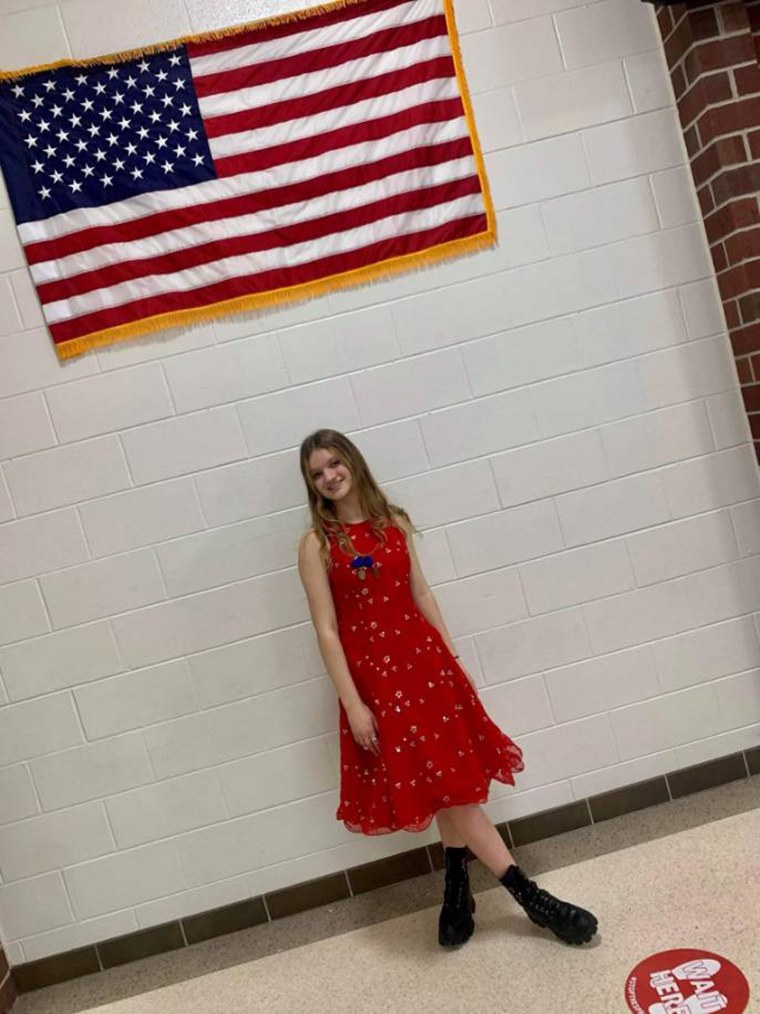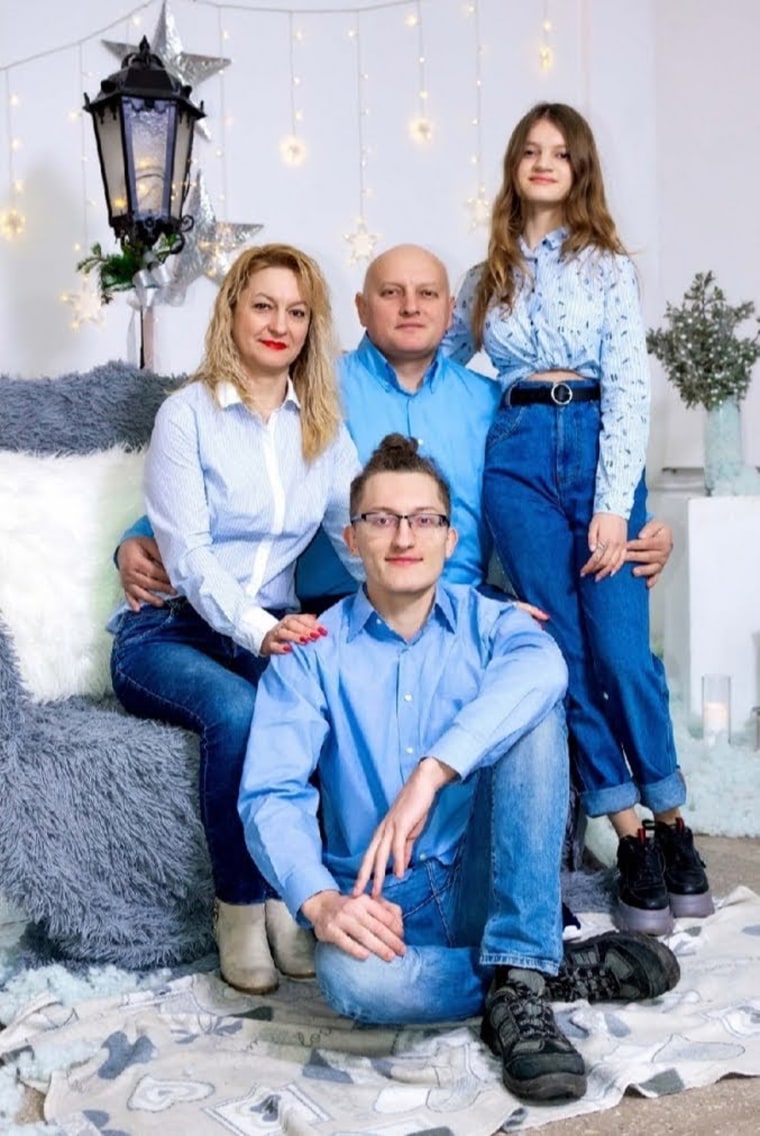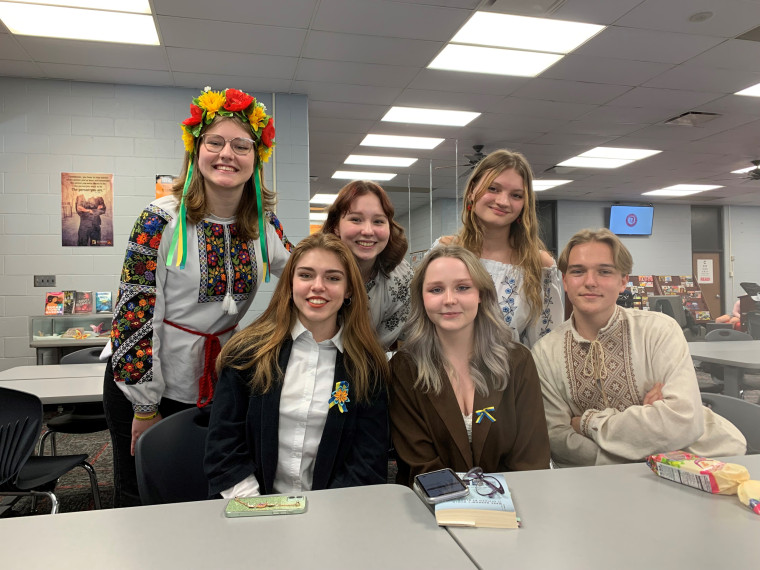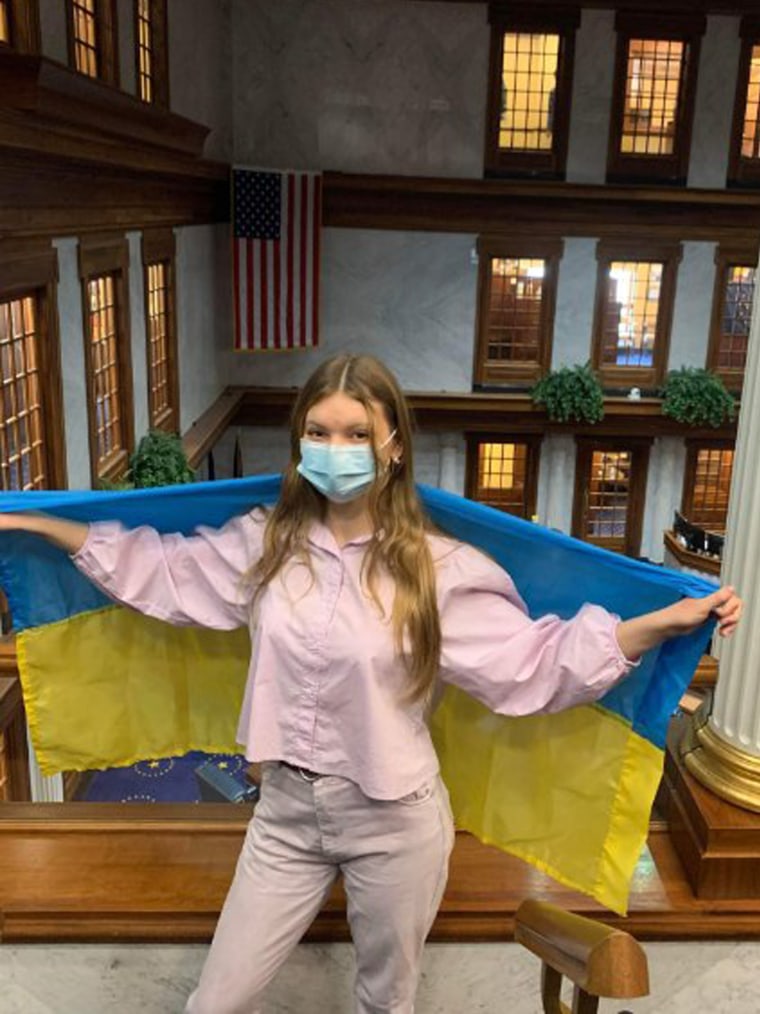When Khrystyna, 16, left her home in Lutsk, Ukraine, in September to take part in a yearlong student exchange program in Connersville, Indiana, she couldn’t contain her excitement.
“I wanted to live with American hosts. I wanted to exchange experiences,” she said.
She looked forward to embracing American high school customs — homecoming dances, performing in jazz choir concerts — before returning to her beloved homeland.
But last month, Khrystyna’s world was turned upside down when Russian forces invaded Ukraine. Khrystyna is among hundreds of Ukrainian exchange students in the United States who fear for the safety of their families and worry about what kind of homeland there will be to return to now that their country is at war.

There are 200 Ukrainian teenagers spending a year in American high schools as part of the U.S. State Department-sponsored Future Leaders Exchange Program, said Pam Blackburn, senior regional director of the Program for Academic Exchange, which helped place Khrystyna in Indiana. At the request of the exchange program organizers, students’ last names are being withheld, out of concern for their families’ safety in Ukraine.
For weeks, students and their host families, who are in regular communication with the State Department, became increasingly concerned about reports of Russian troops massing on the Ukrainian border and of an imminent invasion. Still, Blackburn said, when the actual invasion began, it stunned many of the young exchange students, who struggled to come to terms with the idea that the peaceful homeland they’d said goodbye to just six months ago was suddenly under attack.
In Khrystyna’s case, she was celebrating her 16th birthday at an indoor water park with her host family when she learned Russia had invaded Ukraine.
“At first I didn’t believe it,” Khrystyna said. “You can’t know that your compatriots — your people, friends, family, will need to hide from bombs flying into their houses, need to fight for the future of your country. But then I texted my parents and saw all the news. It was pretty hard.”
Her American host mother, Amanda Catt, stayed by Khrystyna’s side, working to make her feel safe.
“That first night was hard,” Catt said. “We didn’t get any sleep. I held her and she cried.”
Khrystyna’s family is staying, for the time being, in their home in Lutsk. But other Ukrainian exchange students’ families have fled.

Anastasiya, 17, is studying at a high school in Portland, Indiana, this academic year, not far from the school Khyrstyna attends. Anastasiya’s family remains a world away. They were in her hometown, Zaporizhzhya, until a week ago, when Russian bombs made it too dangerous to stay. Now they’re in search of a safe haven.
“Six days ago they decided to move because Russian troops are coming, and they bombed all the towns around our city,” Anastasiya said. “They’ve been driving for six days. They’re moving so slowly because of traffic. They don’t know where they can stop.”
Valdyslav, 17, says his hometown, Kharkiv, has come under repeated attack. He spends his days studying at a high school in Cincinnati, but his mind and his heart are with his family in Ukraine, particularly his grandparents, whom he said he’s very worried about.
“I try to contact them at least twice a day because of all the blasts and shelling in my town and because my city is only 20 miles from the border,” he said. “It’s a very dangerous place.”
But while some students are able to reach their families by phone, others struggle to get through at all.

“It’s very, very hard with data there,” said Anna, 17, who is from Mariupol and is spending the year in Fountaintown, Indiana. “Sometimes they can make phone calls, but it takes time. They also don’t have electricity at all so they use their cars to charge their phones or computers to text me that they’re OK, they’re still alive.”
Some days, the students agree, the anxiety can be too much.
Dasha, 16, who is attending Indiana’s Jay County High School, said she’s learned the hard way not to be consumed by deadly images of attacks that dominate social media feeds and the internet.
“I started Googling the first day. There were a lot of videos of the action, of people dying,” she said. “I shouldn’t have done that. For two hours straight, I was on my phone, just crying the whole time.”
These days, when the stress becomes too much, Dasha says she finds comfort in school and sports.
“I also started taking long walks and reading books,” she said. “It helps.”
The students’ host families and school communities are rallying to support them financially now that it’s difficult, if not impossible, for their parents to send money from Ukraine.
“We’ve had schools come together and pay for the students’ meals for the rest of the year, pay for their extracurricular activities,” Blackburn said. “They’re paying for the exchange students’ phone services so that the students can call home any time they want.”
Some schools are coming together to pay for the Ukrainian students’ prom attire. In other instances, Blackburn said, host communities are raising money for the exchange students’ families back in Ukraine.
As to what will happen to the students when the school year ends, Blackburn said the situation is fluid.

“Our goal is to get these kids back home safely to their natural parents,” Blackburn said. “If that’s not possible because of the turmoil going on, the State Department will consider this on a case-by-case basis. We would never send the kids home to something not safe.”
For now, the students’ families in Ukraine say they miss their children terribly, but are glad to know they’re in safe and loving homes, thousands of miles from the war.
“Thank you,” Gaylna, Khrystyna’s mother, said through tears to Catt during a Zoom call this week. “We love you because you support Khrystyna.”
As Catt hugged Khrystyna to her, Khrystyna’s mother grew emotional.
“I want to hold Khrystyna in my arms, but it is much safer for her to be in the U.S.A. right now,” Gaylna said. “It’s a big relief for us.”